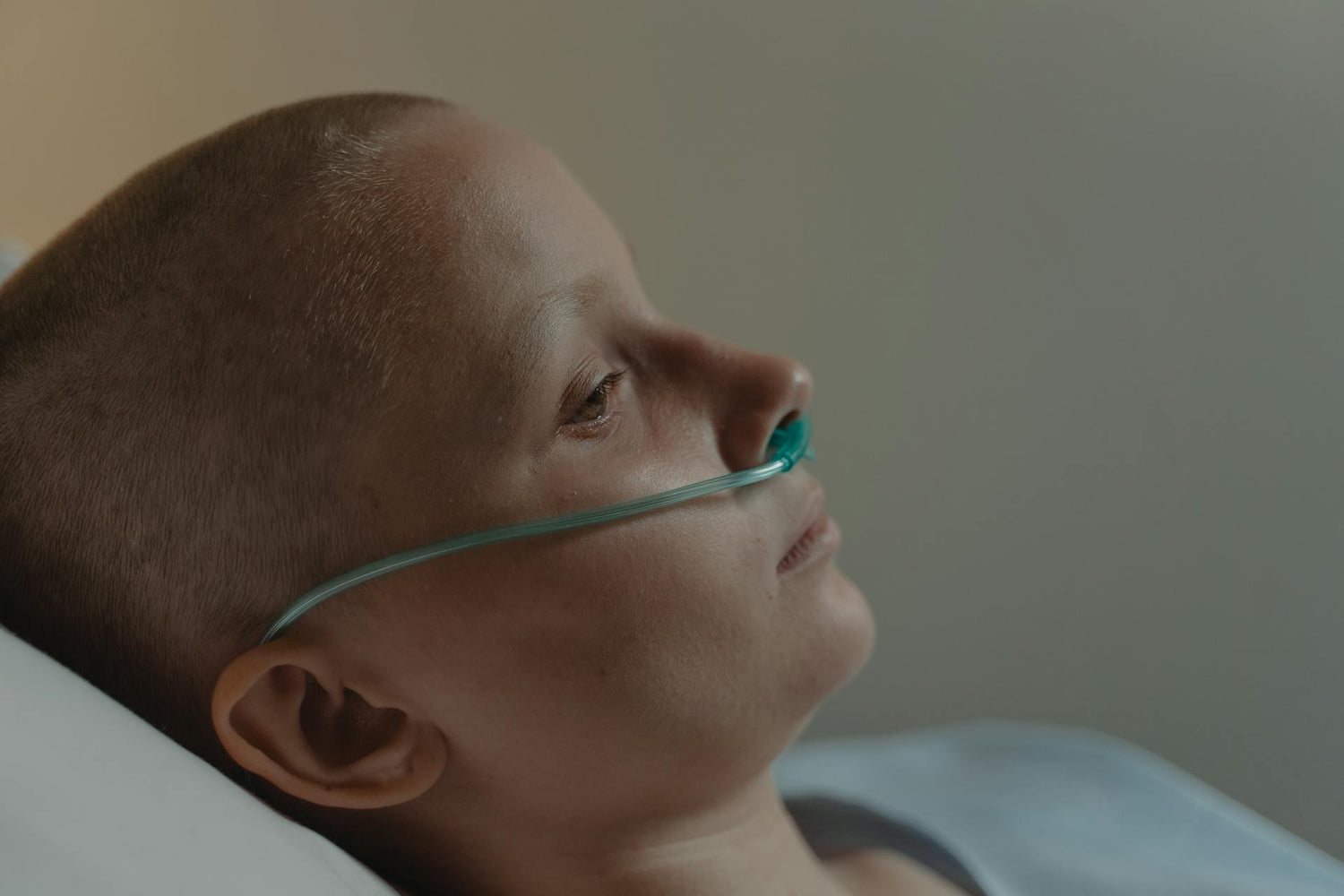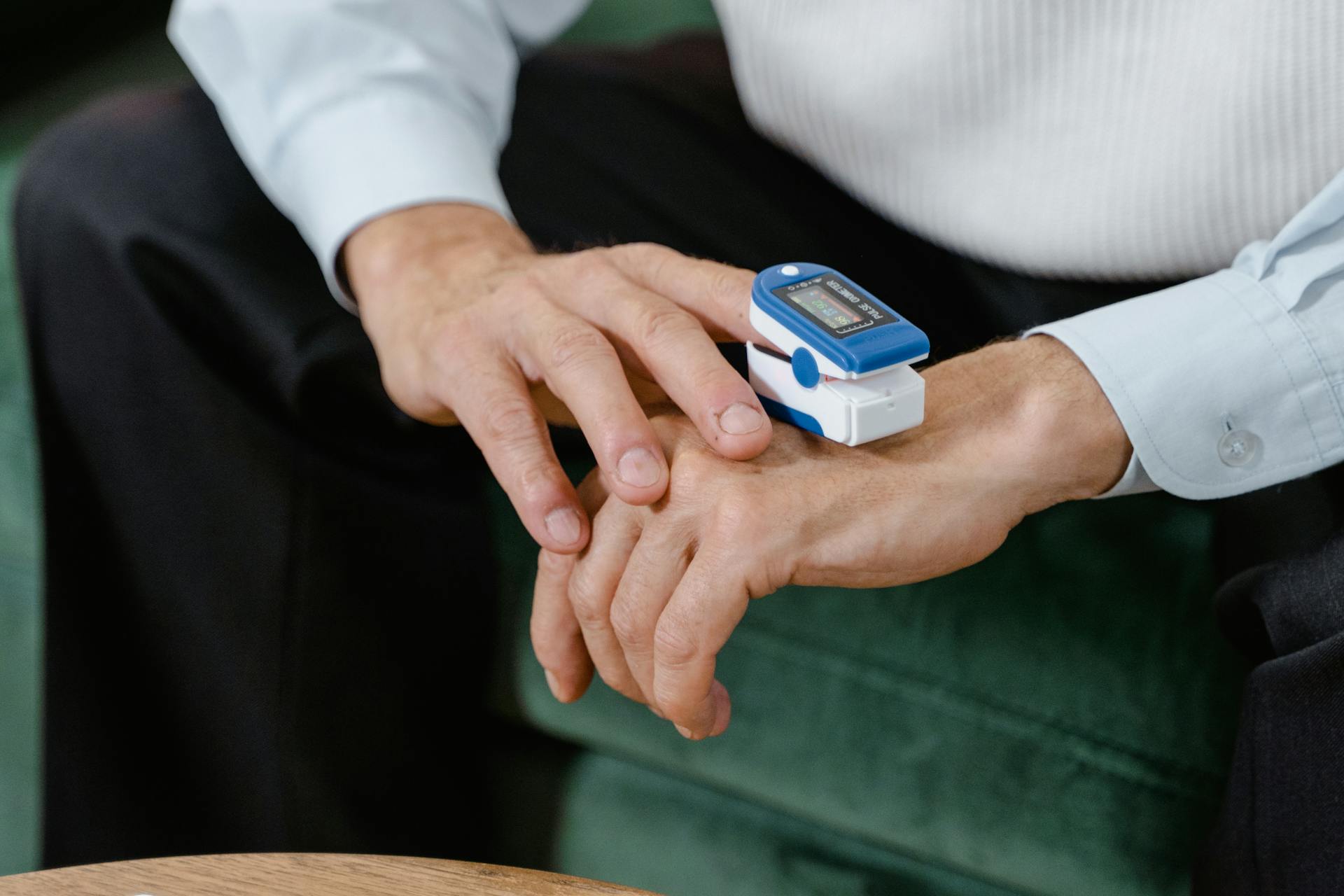Are you considering using a portable oxygen concentrator (POC) for a better night's sleep but unsure if it's safe or comfortable? A POC is a medical device designed to help people who need extra oxygen breathe easier, even while they snooze. But when it comes to sleeping with one, there are a few things to consider-from the whirr of the machine to the way it fits on your face. In this article, we'll dive into whether you can sleep with a POC by your side, ensuring you have all the necessary information for a restful and safe slumber. Whether you're dealing with a condition that requires additional oxygen at night or simply curious about nighttime oxygen therapy, stick with us as we explore the ins and outs of sleeping soundly with a portable oxygen concentrator.
Why Do Some People Need Overnight Oxygen?

Sleep is a time for our bodies to rest and recharge, but for those with certain lung conditions like COPD or sleep apnea, it can be a challenge. These conditions can cause oxygen levels to drop when breathing slows down during sleep. Low oxygen levels are more than just uncomfortable-they can be harmful over time, affecting everything from how the brain works to how well your heart pumps.
1. Understanding the Need for Nighttime Oxygen:
For individuals with respiratory issues, their bodies might not get enough oxygen on their own at night. This can lead to serious health problems. That's why doctors often prescribe extra oxygen at night-it helps maintain a steady supply of this vital gas so that organs can work properly.
2. The Effect of Sleep on Breathing and Oxygen Levels:
When we're asleep, we breathe less deeply and sometimes even pause between breaths. This is usually fine for healthy people, but if you already have a breathing condition, these natural changes can cause oxygen levels to fall. Consistent oxygen flow is crucial for good health, and a dip in this flow can disrupt the body's normal functions.
In essence, for some people, using a portable oxygen concentrator during sleep isn't just about comfort-it's a necessary support for their body. It ensures that even as they rest, their body receives enough oxygen to keep things running smoothly until morning. Up next, we'll explore what portable oxygen concentrators are and how they can help ensure a safe and restful night's sleep.
What Sets Portable Oxygen Concentrators Apart?
A portable oxygen concentrator, or POC, is a small medical device that does a big job. It takes in air from the room, separates the oxygen from other gases, and delivers this pure oxygen to the user through a nasal cannula or mask. Imagine it as a personal oxygen factory that's dedicated just to you.
1. How Do Portable Oxygen Concentrators Function?
A POC is like a clever sieve-it filters out nitrogen and other stuff from the air, leaving only oxygen for you to breathe. This device runs on electricity and has batteries so it can be used on the go or while plugged in beside your bed. Unlike the large, stationary oxygen tanks of the past, POCs are designed to be moved around easily. They're like having an invisible friend who follows you around, making sure you always have enough oxygen.
2. Benefits of Choosing a POC Over Traditional Systems for Night Use.
One big advantage of a POC is that it gives you freedom. You're not tied to a big, heavy tank, and because many POCs work quietly, they won't disturb your sleep with loud noises. They also come with various settings so you can adjust the flow of oxygen to exactly what you need throughout the night. Plus, their compact size means they take up less space-no more clunky gear cluttering your bedroom. They're made to fit into your life (and your living space) as seamlessly as possible.
A POC stands out because it's small, quiet, and adjustable, giving you the freedom to move around and sleep comfortably without worrying about your oxygen supply. Next, we'll look at some safety tips to consider when using one of these handy devices during the night.
Are There Safety Concerns with POCs While Sleeping?

Sleeping with a Portable Oxygen Concentrator (POC) is generally considered safe, but like with any electronic device, especially one that's medical, there are guidelines to follow to ensure everything goes smoothly through the night.
1. General Safety Guidelines for Using Oxygen Equipment at Night:
Firstly, always follow the instructions your healthcare provider or the POC manufacturer has given you. Keep the POC in a well-ventilated area to prevent overheating and avoid covering it with clothes or blankets. Also, no smoking should happen anywhere near the oxygen concentrator, as oxygen can be highly flammable. It's essential to have working smoke alarms in your home, preferably in every room.
2. Special Considerations for POCs: Noise, Power Supply, and Mobility:
Modern POCs are designed to be pretty quiet, but some noise is inevitable. If you're sensitive to sound when sleeping, consider placing the POC further away from your bed, as long as the tubing allows it. Ensure the POC is fully charged or plugged in before you go to sleep to avoid interruptions to your oxygen supply. Additionally, think about where you place the device-keep it somewhere you won't trip over it if you get up during the night.
3. How to Address Common Risks Associated with Nighttime POC Use:
To reduce risks, make sure your POC is in good working order by regularly checking it during the day. Look out for any alarms indicating issues. Have a backup plan in case of power outages, such as a battery pack or access to a stationary oxygen system as a temporary solution. Also, keep an eye on the condition of your nasal cannula or mask; they should be clean and without wear and tear for the best performance and comfort.
By following these tips, you can use your POC while you sleep with peace of mind, knowing that you've taken steps to ensure your safety. In the next section, we'll discuss how to prepare your POC for nighttime use, ensuring you get the restful sleep you need.
How Can You Prepare Your POC for Nighttime Use?

Making sure your Portable Oxygen Concentrator (POC) is ready for the night is like setting up a coffee maker for the morning brew-it's all about having everything prepped so you can relax and enjoy a good night's sleep.
1. Steps to Ensure POC Readiness for Uninterrupted Sleep:
Before you tuck yourself in, check that your POC's filters are clean since they keep the air you breathe pure. See that the device itself is clean and free from dust. Make sure the nasal cannula or mask fits you well and comfortably-this isn't just about comfort; a proper fit ensures you get the right amount of oxygen. Finally, ensure the POC is properly charged or plugged in.
2. Adjusting POC Settings for Night Use: Alarms, Flows, and More:
Your oxygen needs might change when you're sleeping. Some people need more oxygen when they're asleep than when they're awake, while others require a consistent amount. Adjust your POC to the prescribed flow settings for nighttime use. Also, familiarize yourself with the POC's alarms-they're there to alert you if something's off, like low battery or interrupted flow. Knowing what each beep means can help you rest easy.
3. Backup Power Solutions for a Good Night's Rest:
Power outages happen, and it's important to be prepared, especially when your health depends on it. Many POCs come with rechargeable batteries as a backup power source. Always charge these fully before going to bed. If your area is prone to losing power, consider keeping an additional backup battery handy or even a backup oxygen supply like a stationary tank, just in case.
Preparing your POC for nighttime involves ensuring it's clean, charged, and set correctly for your needs. With these steps covered, you can close your eyes at night with confidence, knowing your oxygen supply will be steady and reliable. Next, we'll look into extra comfort measures that can enhance your sleep while using a POC.
Which Comfort Measures Enhance Sleep with a POC?
Getting comfortable with a Portable Oxygen Concentrator (POC) while you sleep is key to a good night's rest. There are several things you can do to make sure your oxygen therapy doesn't get in the way of your slumber.
1. Mask Options for Better Fit and Comfort When Reclined:
The right mask or nasal cannula can make all the difference. Some masks are designed specifically for sleeping, lying flat against the face to avoid pressure marks and discomfort. A well-fitting mask should feel secure without being too tight. You might prefer a soft cannula for less bulk. Try out different styles to see which feels best when you're lying down.
2. Importance of Humidification in Preventing Dryness:
Breathing in oxygen, especially at night, can dry out your nose and throat, which isn't pleasant. Many POCs have built-in humidifiers that add moisture to the oxygen, making it more comfortable to breathe. If your device doesn't have one, you might be able to attach an external humidifier. Keeping the air moist can help prevent irritation and ensure a more comfortable night's sleep.
3. Essential Accessories for Optimal Nighttime POC Usage:
There are also accessories designed to make using a POC at night easier. Longer tubing can give you the freedom to move around in bed without pulling on the mask. A bedside organizer can keep everything tidy and within reach. And if you're worried about the POC shifting around, consider a non-slip mat to keep it in place.
By choosing the right mask, adding humidification, and using helpful accessories, you can settle in for a cozy night's sleep while your POC quietly does its job. Up next, we'll dive into how a POC might impact the quality of your sleep and what research suggests about this important aspect of oxygen therapy.
Does a POC Affect Sleep Quality?
When you're using a Portable Oxygen Concentrator (POC) at night, it's natural to wonder if it will change how well you sleep. Good sleep is crucial, so let's explore what we know about sleeping with a POC.
1. Examining Research on Sleep and Supplementary Oxygen:
Studies have shown that for people who need them, POCs can actually improve sleep quality by ensuring the body gets enough oxygen throughout the night. This can mean fewer awakenings and deeper rest. However, it might take time to get used to the feel of the mask or the sound of the machine-so there's often an adjustment period before users start experiencing better sleep.
2. Real-life Experiences: How Users Adapt to Nighttime POC Use:
Many POC users share that while it was a bit strange to sleep with a device at first, they soon adjusted and now can't imagine sleeping without it. The trick is to find the right setup for you. It could be adjusting the mask fit, getting used to the device's hum, or finding the perfect position for the concentrator in your bedroom.
3. Solutions for Minimizing Disruptions Like Noise:
Even though POCs are designed to be quiet, any noise can be noticeable when you're trying to drift off. Some practical ways to minimize disturbance include placing the unit as far away as the tubing will allow, using a longer cannula, or employing sound-dampening materials around your room. White noise machines or earplugs can also be helpful for light sleepers.
In essence, while a POC may require some getting used to, many users find that any initial impact on sleep quality is outweighed by the benefits of improved oxygen levels and overall health. Those little adjustments can make a big difference, helping you to sleep comfortably and wake up feeling refreshed. Next, we'll talk about coordinating with healthcare providers to ensure you're using your POC effectively and safely during the night.
How Should You Coordinate with Healthcare Providers?
Working closely with healthcare providers ensures that using a Portable Oxygen Concentrator (POC) at night is both safe and effective. Let's see why their role is so important.
1. Why Professional Guidance is Crucial for Nighttime Oxygen Therapy:
Healthcare professionals can offer expert advice on how much oxygen you need while you sleep. They understand how conditions can change over time and what settings will be most beneficial for your specific situation. Relying on their expertise means your therapy will be tailored to give you the best possible results, helping you to feel better and sleep well.
2. Routine Checks and Adjustments by Medical Personnel:
Regular check-ins with your healthcare team are vital for maintaining optimal POC performance. They'll ensure everything is working as it should be and make adjustments as needed. Think of them as your personal POC pit crew, fine-tuning your equipment to keep it running in top condition.
3. Recognizing and Reporting Changes in Your Condition:
If you notice changes in how you're feeling or how well you're sleeping, it's important to tell your healthcare provider. For example, if you're still tired after a full night's sleep, or if you're experiencing shortness of breath, these could be signs that your oxygen delivery needs adjusting.
Collaboration with healthcare providers is like having a co-pilot in your journey with nighttime oxygen therapy-they help navigate the complexities and ensure a smooth ride. By following their guidance, performing routine checks, and keeping them informed about any changes in your condition, you can rest assured that you're getting the best care for your needs. Now, let's wrap up what we've covered about sleeping with a POC and look ahead to staying comfortable and safe every night.
Breathe Easy Tonight: Preparing Your POC for Restful Sleep
Understanding the nuances of sleeping with a Portable Oxygen Concentrator (POC) reveals that a little patience in the beginning can lead to significant sleep improvements and better overall health. Fine-tuning your nighttime setup by selecting the right mask, using humidification to combat dry air, and reducing noise helps ensure a peaceful rest. Continuous dialogue with healthcare professionals is critical to customize your oxygen therapy and address any emerging needs. Embrace these steps to foster a tranquil sleep environment, supported by the silent vigilance of your POC, setting the stage for energized mornings and healthier days.





Commenta
Questo sito è protetto da hCaptcha e applica le Norme sulla privacy e i Termini di servizio di hCaptcha.